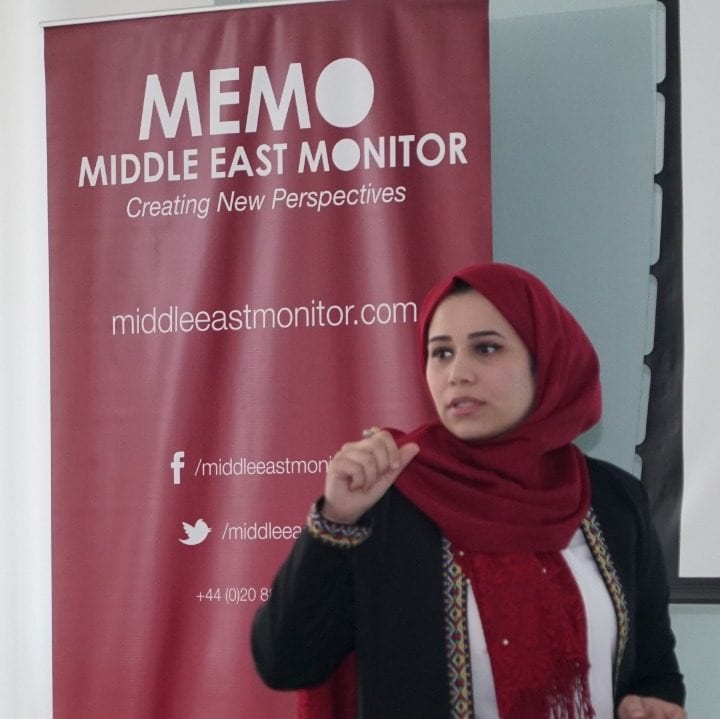Being a Palestinian refugee is not a matter of choice, but working for Palestine is. Millions of Palestinians have found themselves uprooted following the Nakba in 1948 and the 1967 June War. Argentina is one of the countries which now have a Palestinian diaspora community as a result. Displacement and trying to adapt to a new country makes the preservation of culture and heritage very important. The performance of traditional dabke dancing is part of the process of preserving Palestinian identity.
What does dabke mean to Palestinians in the diaspora? For Christian Abu Ghattas, the director of Jabal Al Zaitun, Argentina’s dabke group that explores identity, culture and resistance through dance, performances enable Palestinian refugees to feel more connected with their homeland. The music itself is a powerful expression of this connection.
“Dabke has a different energy that is different from other dance forms,” Abu Ghattas told me. “The dissemination of our folklore and our traditions, the beauty of our music, food, embroidery and everything else about our identity is essential. The resistance of our people is a necessity no matter where we are, because the occupying power is trying to erase everything about Palestine and its people.”
Jabal Al-Zaitun was created in 2018 with help from the Ambassador of Palestine in Buenos Aires, Husni Abdel Wahed, who supported the initiative and gave life to this project from the beginning. As far as the performers are concerned, the synchronised moves and jumps are not just a nice way to dance; there is a very important message behind every dabke step.
READ: The Palestinian flag flies across Latin America to mark Land Day
“Our team is a faithful reflection of Argentine solidarity with our cause,” explained Abu Ghattas. “The membership of Jabal Al-Zaitun is made up of citizens of Palestinian heritage and other Argentines who have adopted our culture and cause as their own. Their efforts make us proud of our Palestinian origins.”
Dabke is much more than cultural expression, though. It expresses the language of shared suffering, while delivering a message that Palestinian culture, resistance and existence remains vibrant. The main objective of Jabal Al-Zaitun is to spread Palestinian culture to every corner of Argentina and the rest of South America through dabke and the costumes worn by the dancers, every item of which reflects the history of the land region and its people.
“Dabke is our way of rejecting the occupation and seizure of Palestinian land by Israel,” said Abu Ghattas. “The Israeli authorities violate international laws and conventions, including our legitimate right of return, by building illegal settlements on our land. The occupation also tries to steal our culture, claiming that Palestinian food, music, traditional songs and embroidered clothes are Israeli in origin.”
Argentina has a small Palestinian community within its large Arab community. The majority of Palestinian immigrants live in Buenos Aires. “Our community in Argentina might be small but it is very active. They work tirelessly to spread the Palestinian cause through human rights organisations and political groups that have an effect on Argentine civil society.”
Argentina recognised the State of Palestine on the 1967 Green (1949 Armistice) Line eleven years ago. The government acknowledged that Palestine is a “free and independent state” just days after neighbouring Brazil made the same announcement in 2010. The Palestinian community in Argentina commemorates this decision on 6 December every year.
READ: Palestine tops Chilean president’s agenda in first statements after taking office
Concluding our conversation, Christian Abu Ghattas confirmed that his organisation and its dabke dancers are determined to deliver the message to the people of Argentina and South America that Palestinians cannot and will not forget their culture and heritage.
“We have Palestinian blood, pride and dignity, so we have to work to protect it. We need to spread our traditions, music, dance, history, culture and clothes despite the negative propaganda against us. I want to see my homeland free so that I can go to my grandfather’s land in Beit Jala one day.”

![Dabke in preserving Palestinian culture in Argentina [Christian Abu Ghattas]](https://i0.wp.com/www.middleeastmonitor.com/wp-content/uploads/2022/04/3Christian-Abu-Ghattas.jpg?fit=920%2C614&ssl=1)

![WhatsApp Image 2022-03-02 at 08.16.43 Dabke in preserving Palestinian culture in Argentina [Christian Abu Ghattas]](https://i0.wp.com/www.middleeastmonitor.com/wp-content/uploads/2022/04/WhatsApp-Image-2022-03-02-at-08.16.43.jpeg?w=322&h=175&ssl=1)
![2[Christian Abu Ghattas] Dabke in preserving Palestinian culture in Argentina [Christian Abu Ghattas]](https://i0.wp.com/www.middleeastmonitor.com/wp-content/uploads/2022/04/2Christian-Abu-Ghattas.jpg?w=322&h=215&ssl=1)
![[Christian Abu Ghattas] Dabke in preserving Palestinian culture in Argentina [Christian Abu Ghattas]](https://i0.wp.com/www.middleeastmonitor.com/wp-content/uploads/2022/04/Christian-Abu-Ghattas.jpg?w=590&h=394&ssl=1)






